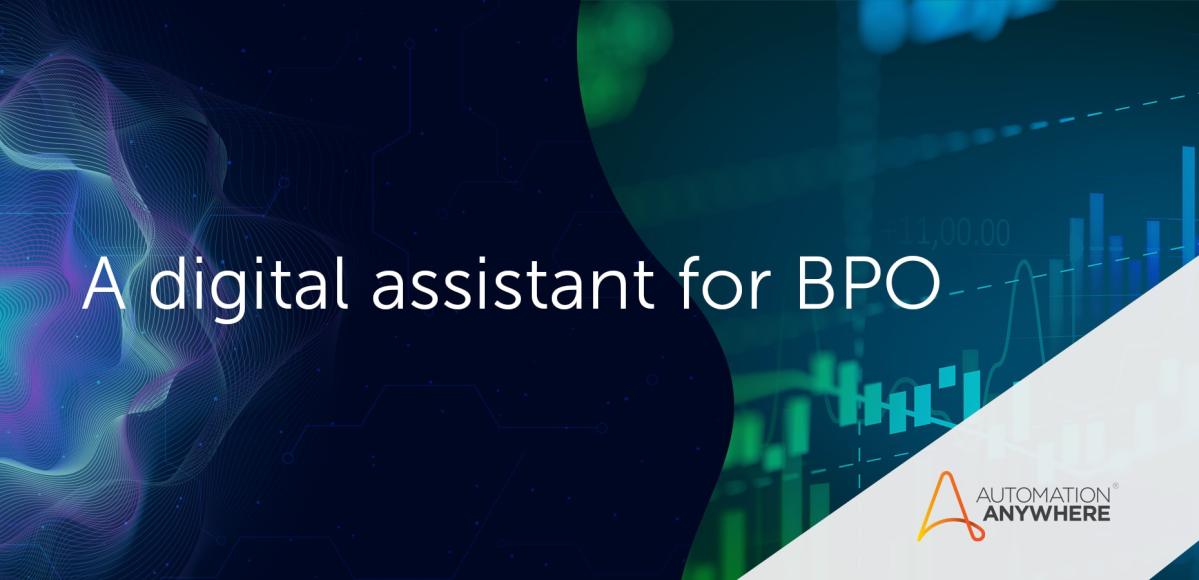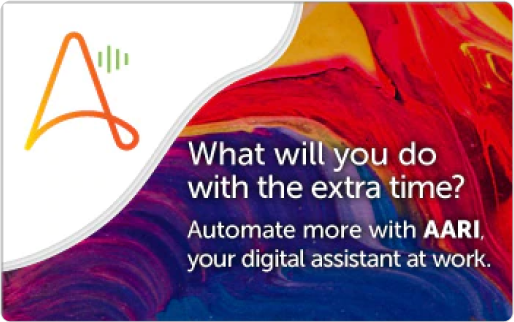Blog
Improving BPOs with a Digital Assistant and Other RPA Tools

Intelligent automation, combining Robotic Process Automation (RPA) and artificial intelligence (AI), has helped business process outsourcing (BPO) companies meet a variety of challenges. By automating processes, the companies have been able to enhance their performance cost-effectively. They’ve accelerated and improved customer support, creating a better experience for corporate customers, their customers, and the BPO companies’ employees. In addition, they’ve been able to scale their business to attract new corporate customers and retain existing customers with expanded services and support.
Even so, there’s still much to gain from intelligent automation for BPO companies.
The stakes are higher
Corporate customers are now expecting more from their BPO relationships. Evolving economical and global forces have shifted the business landscape towards lower barriers to entry, increased suppliers, higher customer expectations, and reduced brand loyalty. The increased competitive pressure corporate customers face is being passed on to the BPOs, forcing them to find even more efficient, cost-effective ways to operate with expanded tasks while still delivering quality at scale.
Corporate customers are expecting not only cost reduction but also next-generation benefits from their relationships—benefits that come from BPOs continuing to invest in intelligent automation for their operations.
Working better with advanced tools
Advances in intelligent automation are giving BPOs the power to be an even more critical partner in business success, taking their operations to new levels of efficiency, flexibility, accuracy, productivity, and cost-savings. For example, to achieve maximum efficiency, process discovery tools are available to help BPOs quickly and easily identify processes within their organization that are the best fit for automation. And there are AI tools to help automatically extract, process, and analyze structured and now unstructured data—something not possible a short time ago.
The age of the digital assistant at work
One recently introduced tool can offer BPOs more opportunity to unlock the potential of their digital transformation and drive further engagement with their corporate customers. It’s a digital assistant for business, similar to the Amazon Alexa for the home.
In the past, processes that involved decision-making or human input were not prime candidates for RPA. In addition, implementing automation was usually reserved for the IT administrator and specialist developer. Now, those processes can be automated with a digital assistant, RPA bots, and humans working together to handle everything from data lookups across multiple systems to complex escalation scenarios. And with a digital assistant, automation is accessible to everyone in the BPO organization, including business users—in the front office, back office, and every office.
The digital assistant is an easy-to-use, bot-to-human interface that oversees business processes by leveraging RPA bots. It requires little or no training to operate.
Employing digital assistants in BPOs
Financing and Accounting (F&A) is a major function of many BPOs’ operations. And invoice processing is one of the most automated processes within F&A. A digital assistant can handle general processing and even detail work. For example, it can be employed to route invoices above a certain dollar amount or those without a matching purchase order to a human for a judgment call, then resume the automation after the decision is made. That action can save many human hours from manually processing each exception.
With a digital assistant, exception paths can be built into the workflow to account for not just one, but two, three, or multiple outcomes where human judgment is needed. Compliance can also be enforced from an operational perspective since the human is involved to guide the bot while the bot ensures the human doesn’t make any mistakes.
Another use case for a digital assistant is contact center operations. Contact center agents deal with the same, repetitive requests from customers each day. Although these requests can be simple in nature, they involve numerous clicks throughout multiple systems that consume precious minutes during a live call. This negatively affects contact center key performance indicators (KPIs) such as average handle time and customer satisfaction—increasing handle time and decreasing satisfaction.
But now, a contact center BPO can service more tickets in a day while improving the quality and outcome of the interaction with a digital assistant helping agents enter data, complete tasks, and spend more time interacting with the customer. A digital assistant can improve contact center KPIs by working with the agent to automate each stage before, during, and after the call.
Just the start
Those are just two of the use cases with benefits. Imagine the improvements across the entire business landscape of a BPO when intelligent automation, especially with tools such as a digital assistant, is employed in the operation.
See What a Digital Assistant Can Do for Your BPO.
Share this:
Related Blogs
About Sharon Liu
Sharon is the Senior Product Marketing Manager at Automation Anywhere, focusing on front-office automation and cognitive solutions.
Subscribe via EmailView All Posts LinkedIn






